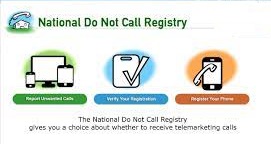In a world where constant connectivity often comes at the cost of privacy, NationalDoNotCall.gov emerges as a crucial fortress for individuals seeking respite from the intrusion of unwanted telemarketing calls. This comprehensive article will delve into the origins, mechanics, legal implications, and societal impact of NationalDoNotCall.gov, emphasizing its role as a cornerstone in empowering individuals to take control of their telecommunication preferences and safeguard their privacy.
Origins of National DoNotCall.gov
Addressing a Growing Nuisance
NationalDoNotCall.gov came into existence as a direct response to the escalating concerns of individuals bombarded by incessant telemarketing calls. In [insert year], regulatory bodies recognized the need for a centralized platform to address this growing nuisance, leading to the creation of NationalDoNotCall.gov. This website serves as a powerful tool, and its significance lies in its ability to empower individuals to actively manage their communication preferences.
Decoding National Do Not Call.gov
An Online Sanctuary for Privacy
NationalDoNotCall.gov is more than just a website; it is an online sanctuary designed to provide individuals with the means to control their telecommunication experiences actively. By visiting NationalDoNotCall.gov, individuals can register their residential landline or mobile phone numbers, signaling their desire to avoid unsolicited telemarketing calls. The website becomes a virtual shield, protecting them from the constant barrage of unwanted solicitations.
Mechanics of NationalDoNotCall.gov
Empowering Users Online
Understanding the mechanics of NationalDoNotCall.gov is essential to grasp its significance. Individuals can navigate to the official website and follow a user-friendly interface to add their phone numbers to the registry. Once registered on NationalDoNotCall.gov, telemarketers are legally obligated to consult the registry before making calls, ensuring compliance with the expressed preferences of individuals and reinforcing their privacy.
Legal Implications
Upholding Privacy through Online Registration
The act of registering on NationalDoNotCall.gov is not a mere digital formality; it carries legal weight. Telemarketers who ignore the preferences recorded on the website may face penalties and legal consequences. This legal framework highlights the commitment of regulatory bodies to uphold the sanctity of NationalDoNotCall.gov and protect the privacy rights of individuals in the digital age.
Benefits of Online Registration through NationalDoNotCall.gov
Registering through NationalDoNotCall.gov offers numerous benefits for individuals seeking relief from unwanted calls. Beyond being an online shield against incessant telemarketing calls, it grants individuals a sense of control over their communication devices. The online registration process becomes a proactive tool, allowing individuals to curate a more meaningful and solicited calling experience in the digital realm.
Navigating the Online Registration Process
Strengthening Digital Privacy
The online registration process on NationalDoNotCall.gov is a straightforward journey, designed to be accessible to all users. By following the steps outlined on the website, individuals can effortlessly add their numbers to the registry, contributing to the strength of NationalDoNotCall.gov as a robust tool for safeguarding digital privacy. The simplicity of the process encourages widespread participation, fortifying the online sanctuary.
Public Awareness
Amplifying the Impact of NationalDoNotCall.gov
While NationalDoNotCall.gov is a potent online tool, its effectiveness relies on public awareness. Outreach programs, educational campaigns, and digital advertising play a pivotal role in ensuring that citizens are informed about the website and encouraged to participate actively. A well-informed public is more likely to utilize NationalDoNotCall.gov, amplifying its impact in creating a more privacy-centric telecommunication environment in the digital realm.
Impact on Telemarketing Practices
Shaping Digital Etiquette
The implementation of NationalDoNotCall.gov has not only reshaped traditional telemarketing practices but has also set a standard for digital etiquette. Telemarketers, aware that individuals actively use NationalDoNotCall.gov, are compelled to adopt more targeted and respectful approaches to reach potential customers in the online realm. This shift fosters a more ethical and consumer-friendly digital telecommunication landscape.
Technological Adaptations
Ensuring Relevance in the Digital Age
In an era marked by rapid technological advancements, NationalDoNotCall.gov must adapt to new challenges in the online realm. The rise of advanced digital telemarketing technologies necessitates ongoing updates to ensure the continued relevance and effectiveness of the website. Collaboration with tech experts remains crucial to stay ahead of emerging trends in the ever-evolving digital landscape.
Future Outlook
The Continued Evolution of NationalDoNotCall.gov
Looking ahead, NationalDoNotCall.gov stands as a digital cornerstone in the battle for privacy. Its success serves as a model for other regions grappling with the challenges of unwanted digital telemarketing calls. As technology evolves, the website must remain a dynamic and adaptive tool, continuing to empower individuals and protect their digital privacy in an interconnected online world.
Conclusion
In conclusion, NationalDoNotCall.gov is not merely a website; it is a testament to the power of digital tools in preserving privacy. By participating in the online registration process, individuals actively contribute to the ongoing narrative of reclaiming control over their digital communication channels. In an age where online privacy is a precious commodity, NationalDoNotCall.gov stands as a digital sanctuary, empowering individuals and shaping a more respectful digital telecommunication landscape.
